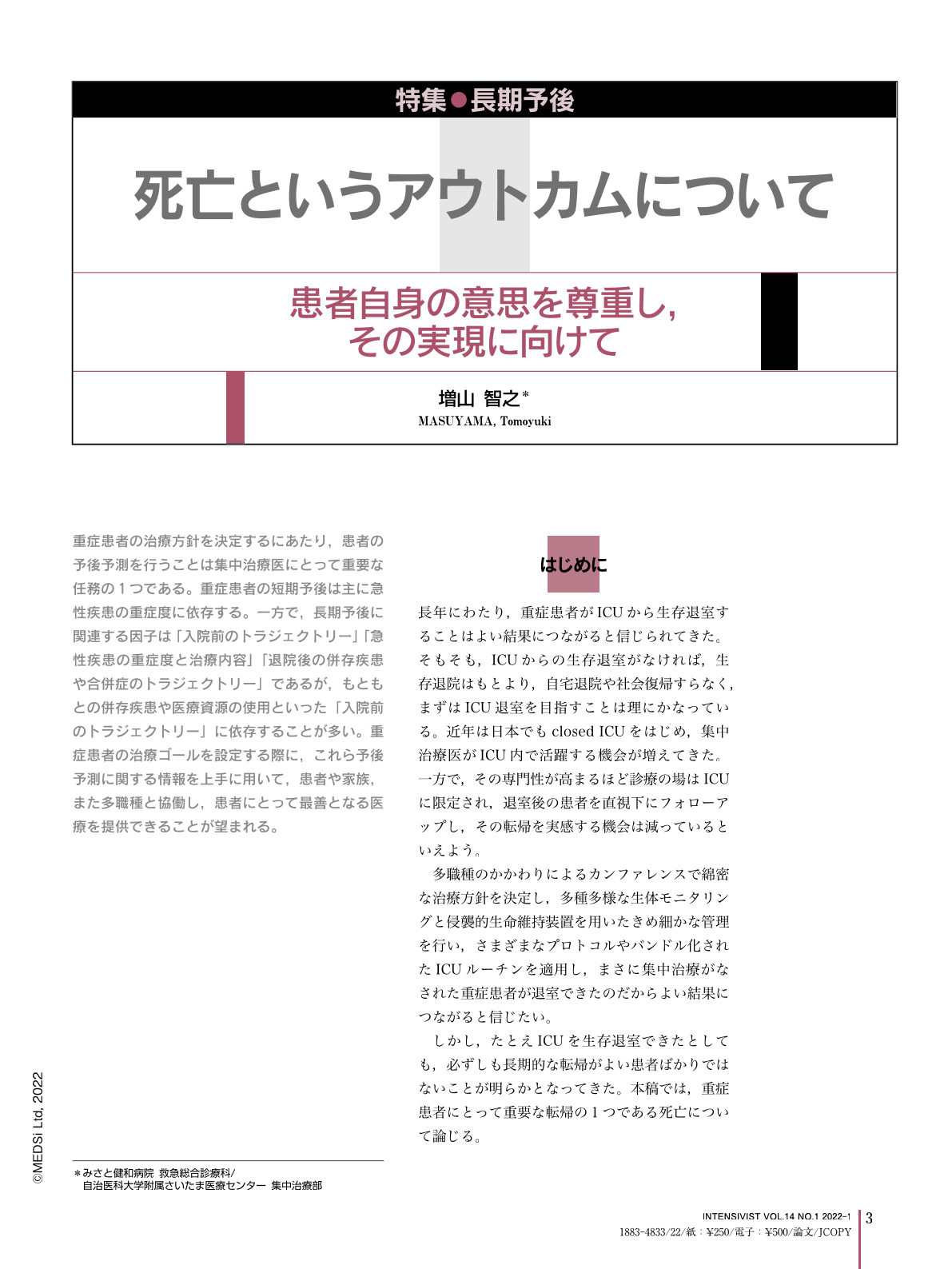Japanese
English
- 有料閲覧
- Abstract 文献概要
- 1ページ目 Look Inside
- 参考文献 Reference
重症患者の治療方針を決定するにあたり,患者の予後予測を行うことは集中治療医にとって重要な任務の1つである。重症患者の短期予後は主に急性疾患の重症度に依存する。一方で,長期予後に関連する因子は「入院前のトラジェクトリー」「急性疾患の重症度と治療内容」「退院後の併存疾患や合併症のトラジェクトリー」であるが,もともとの併存疾患や医療資源の使用といった「入院前のトラジェクトリー」に依存することが多い。重症患者の治療ゴールを設定する際に,これら予後予測に関する情報を上手に用いて,患者や家族,また多職種と協働し,患者にとって最善となる医療を提供できることが望まれる。
Predicting the prognosis of critically ill patients is one of the most important tasks for intensivists when deciding on a treatment strategy. The short-term prognosis of critically ill patients mainly depends on the severity of the acute illness and the intensity of treatment. Factors related to long-term prognosis include “pre-hospital trajectory”, “severity of acute illness and intensity of treatment”, and “trajectory of comorbidities and complications after discharge”, but often depends on “pre-hospital trajectory” such as comorbidities and the use of medical resources. When setting treatment goals for critically ill patients, it is desirable to be able to provide the best possible medical care for patients by skillfully using information on these prognostic factors in collaboration with patients, their families, and a multidisciplinary group of professionals.

Copyright © 2022, MEDICAL SCIENCES INTERNATIONAL, LTD. All rights reserved.


